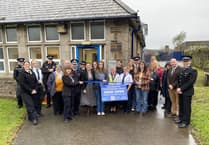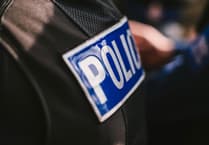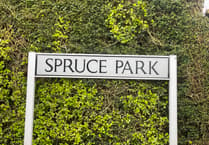UPDATE at 4pm: Critical Incident Declared due to pressures on the Ambulance Service.
- - - - - - - -
THE South Western Ambulance Service NHS Foundation Trust (SWASFT) is urgently appealing to the public to think carefully before dialling 999 due to the extreme demand it is currently facing following the four-day Christmas break.
At 11.30am today (Wednesday, December 28) there were 482 patients waiting for ambulances across the South West, with 106 patients awaiting handover at hospitals across the South West.
SWASFT’s Deputy Director of Operations, Wayne Darch, said: “Please help us to help the patients who need us most by only calling 999 if a patient has a life-threatening condition or illness.
"If the condition of a patient is not life-threatening we may direct them to an alternative service. So please help us by accessing the right service for the care you need.
“We are doing all we can to manage these winter pressures and we are sorry that we are unable to respond to some patients as quickly as we would like. We will get to you as soon as we can.
“Please do not call back simply to ask for an estimated time of arrival of an ambulance. We cannot provide one, and it blocks our lines for other callers.
“I’d like to reiterate SWASFT’s thanks to our people and all our NHS partners working to deliver the best possible care they can for patients over the festive period.”
Which service should I access?
• Self-care – visit NHS 111 online for self-care advice for things like grazed knees, coughs and colds
• Pharmacy – visit your local pharmacy for headaches, upset stomachs, aches and pains
• NHS 111 – visit NHS 111 online or call 111 for advice and support 24 hours a day, seven days a week
• GP – call your GP for symptoms that won’t go away
• Minor injury unit – attend your local minor injuries unit for urgent but not life-threatening conditions and injuries such as sprains, fractures and burns
• 999 – call 999 for life-threatening emergencies such as cardiac arrest, loss of consciousness, fits that aren’t stopping, chest pain, breathing difficulties, severe bleeding, severe allergic reactions, suspected stroke and serious head injuries.
The South Western Ambulance Service NHS Foundation Trust (SWASFT):
1 provides emergency and urgent care across an area of 10,000 square miles - covering Cornwall and Isles of Scilly, Devon, Somerset, Dorset, Bristol, Wiltshire, Gloucestershire - which is 20 per cent of mainland England and is predominately rural.
2 serves a resident population of more than 5.5 million people, with an estimated annual influx of more than 23 million tourists. It typically deals with around 2,650 incidents a day.
3 employs more than 4,000 staff across 131 sites including 96 ambulance stations, and two Emergency Operations Centres in Bristol and at headquarters in Exeter.




